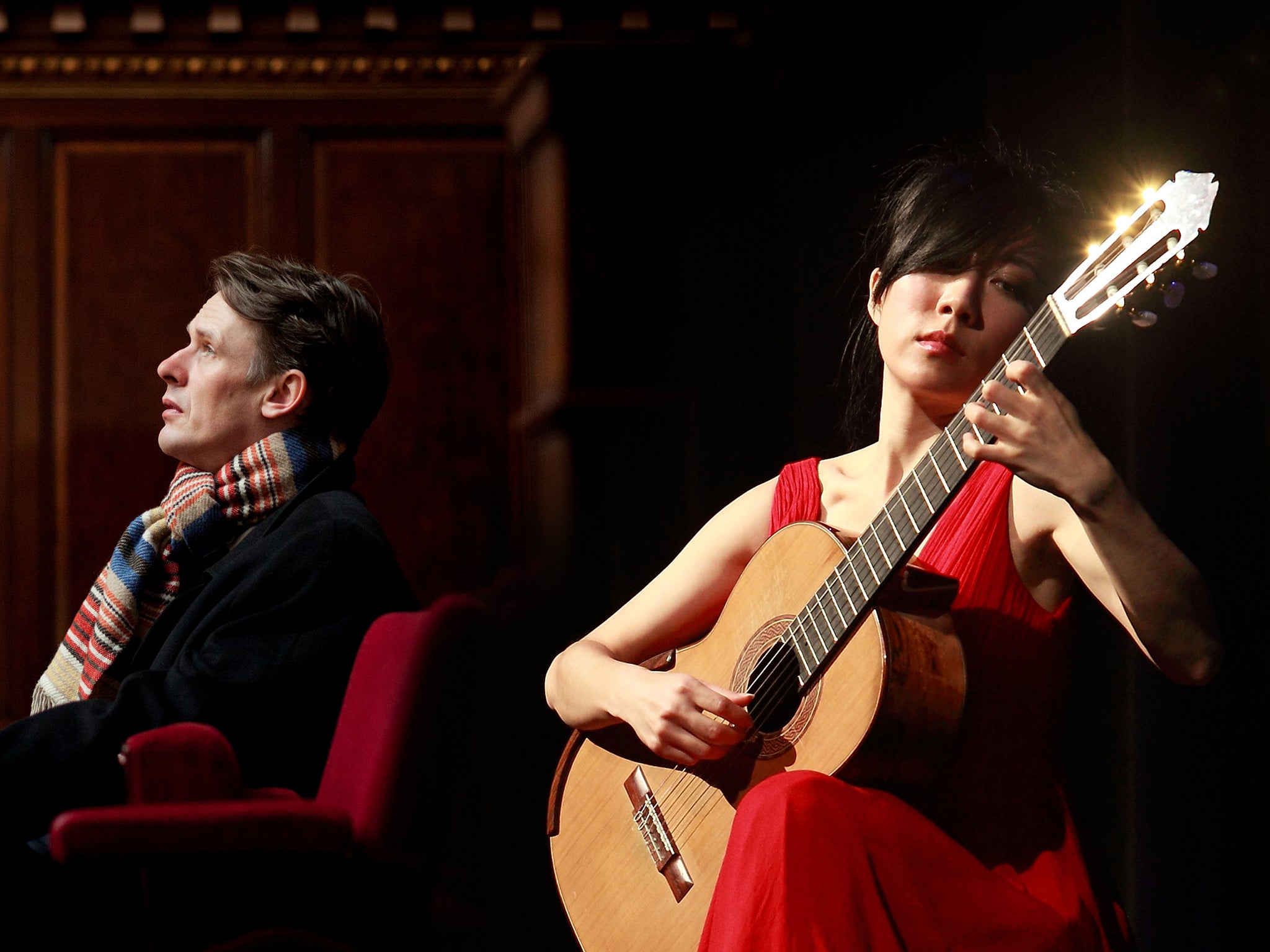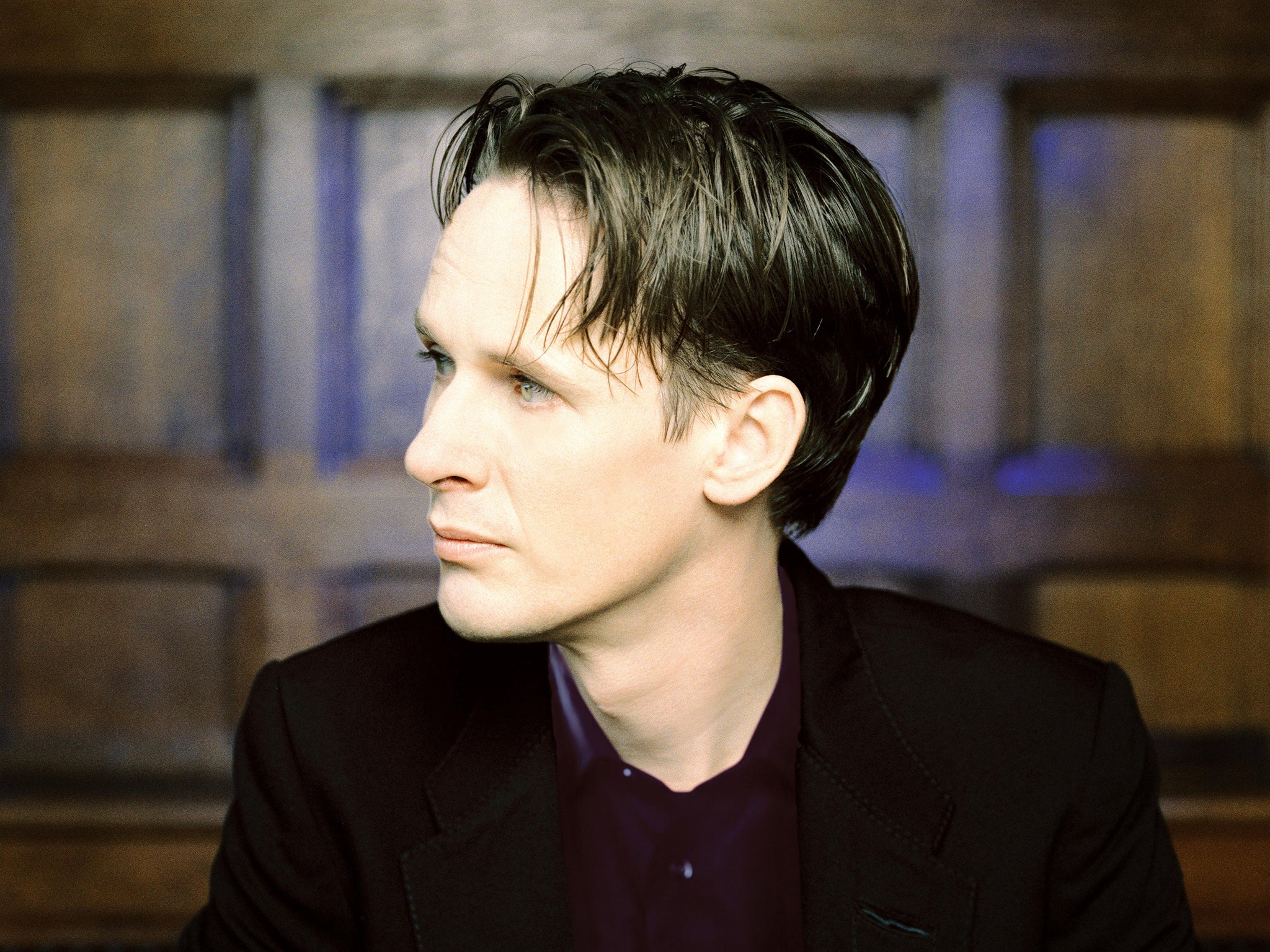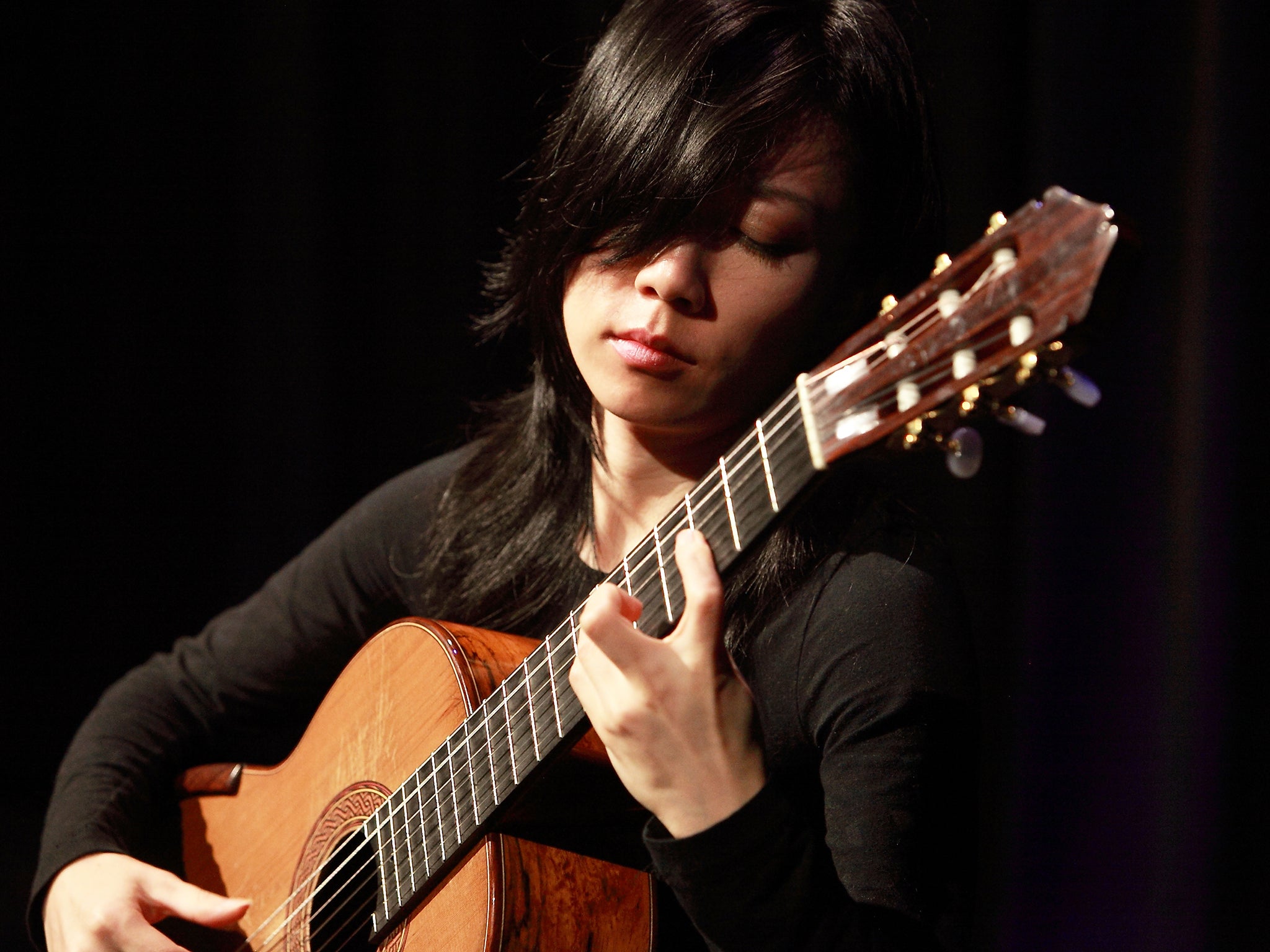Bridging the East-West classical divide: Tenor Ian Bostridge and guitarist Xuefei Yang on their trailblazing musical collaboration
The renowned pair talk about mixing their heritages for a programme of British and Chinese songs

Next Sunday, Shakespeare’s Globe will play host to an intriguing collaboration by a pair of musicians whose careers could hardly have been more different.
On the one hand, there’s the famous English tenor, whose smooth route to the candlelit Sam Wanamaker Playhouse has taken in Dulwich College, Westminster, St John’s College, Oxford, a distinguished academic role and near constant acclaim since making his concert debut aged 30. And on the other, there’s the Chinese guitarist who fought to play professionally an instrument that was scarcely known in her home country, learning alone at a conservatoire in the aftermath of the Cultural Revolution which banned such Western barbarities.
However, the converging paths of Ian Bostridge, 49, and Xuefei Yang, 37, have met in a programme of music that conjoins their British and Chinese heritage, while calling upon a gift they share – the capacity to make the voice or instrument express character. Bostridge’s sensitive performance, for instance, as the Mad Woman in Britten’s painful third “parable for church performance”, Curlew River, was a highlight of the Barbican’s programme last year; he has just repeated the role in the United States, to great acclaim. Yang, for her part, is able to draw from the guitar the sound of many other instruments, which makes her a particularly exciting accompanist, as versatile as a pianist but capable of greater intimacy.
This is a quality that Bostridge particularly values. “Berlioz was a guitarist and not a pianist at all, which is why the colours of his orchestration are so exciting,” he observes. “It’s much easier working with the guitar than with a piano, because the voice and guitar are much more evenly matched, compared with the difficulty of fighting with a 7ft Steinway.” This equal partnership has already been captured on a recording last year of Britten songs and beyond next week’s Globe concert, they are working towards a big tour of the Far East, where one of the items in their repertoire is sure to have special resonance: Britten’s Songs from the Chinese.

Given Bostridge’s particular flair for the music of the composer, the work is the perfect meeting place for the duo. In the mid-Fifties, Britten’s growing interest in the music of the Orient took him to the Far East, where he absorbed many of the cultural influences that underpin the song cycle, featuring six songs translated by Arthur Walley from the 305 poems in the Book of Songs, a 4,000-year-old text that is a classic of Chinese literature. Nevertheless the cycle’s often melancholy vignettes were, perhaps, not so far from his Suffolk home: the swaying rhythms of the plodding oxen in “The Herd Boy”, or the lament for fading youth in “Depression” are universal. So too, a song about music itself, “The Old Lute” and a hymn to the unicorn, “Dance Song”.
Yang grew up with the Book of Songs: her very name, Xuefei, literally “snowing densely”, comes from this important text. And she is a great ambassador for the cultural traditions of her own country, despite being firmly rooted in the West since coming to London to study. Her remarkably varied sound and her world view make her open to all types of music: her “very best of” album, Sojourn, released last year, includes guitar mainstays such as the Adagio from the Concierto de Aranjuez and Stanley Myers’s Cavatina, made famous by the film The Deer Hunter, arrangements of classics – Air on a G String – and a movement from The Butterfly Lovers, the musical version of the Chinese Romeo and Juliet, in which Liang Shanbo, a poor scholar, and a noblewoman, Zhu Yingtai, lovers despite their families’ wishes, fly away. “If you go to China it’s probably the first music you hear, at the airport,” says Yang, laughing.
As Chinese culture spreads in the wake of the country’s economic adventures, Western audiences are going to be hearing more of its artists and composers. Yang commissions new work, and has just returned from Australia, where she made her debut at Sydney Opera House and played with the Melbourne Symphony Orchestra both Rodrigo’s Concierto di Aranjuez and a new concerto by her countryman Tan Dun. It’s all a long way from the days when her chosen instrument was considered by those in Chinese music to be “a hooligan”. Now 200 new concert halls are under construction in China, and Yang gets a rock-star welcome, working her way patiently through the queues for her autograph.

Bostridge may do the singing now – “the player is the leaves, the singer is the flower”, says Yang – but the guitarist started out both singing and playing, and is acutely aware of the demands of the lyrics and of different languages. “The guitar is a very singing instrument, but it is also plucked, and I want to bring out the singing quality. It is also very adaptable – it can sound like brass, woodwind, percussion.
“If you don’t play the guitar, it’s hard to write for. We know, for example, that Schubert played the guitar and in his time the guitar and voice were a very popular combination. Many pieces were published with alternative piano and guitar accompaniments. If [any of] the composers who have died [have] an unknown guitar piece, it would have to be Schubert!”
Enjoy unlimited access to 100 million ad-free songs and podcasts with Amazon Music
Sign up now for a 30-day free trial. Terms apply.
ADVERTISEMENT. If you sign up to this service we will earn commission. This revenue helps to fund journalism across The Independent.
Enjoy unlimited access to 100 million ad-free songs and podcasts with Amazon Music
Sign up now for a 30-day free trial. Terms apply.
ADVERTISEMENT. If you sign up to this service we will earn commission. This revenue helps to fund journalism across The Independent.
The artists have their personal favourites from their programme: for Yang, Britten’s Nocturnal after John Dowland, inspired by the Renaissance lute composer, turns convention on its head, opening with variations and building to a rendition of Dowland’s “Come Heavy Sleep”. “I’m a big fan of Dowland,” says Yang. “In his time there was no guitar, but we can play his music on the guitar. Britten’s response is considered by some people to be the single most important piece for the solo instrument.” Bostridge picks a mournful song by Dowland: “ ‘In Darkness Let Me Dwell’ is the most extraordinary piece with its radical dissonances. We’re going to work out some way of lowering the candlelight.”
There won’t be a dry eye in the house.
‘Songs From Our Ancestors’, is at the Sam Wanamaker Playhouse, Shakespeare’s Globe, next Sunday (shakespearesglobe.com)
Join our commenting forum
Join thought-provoking conversations, follow other Independent readers and see their replies
Comments
Bookmark popover
Removed from bookmarks